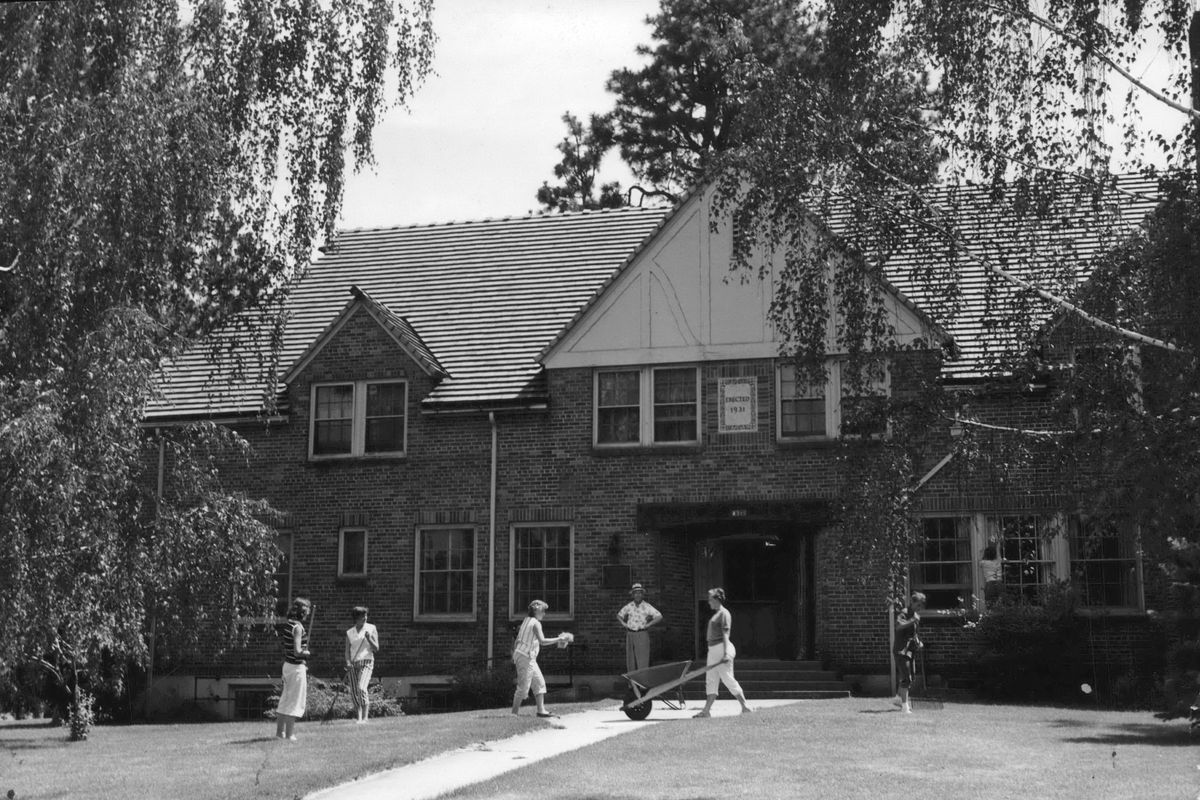This column reflects the opinion of the writer. Learn about the differences between a news story and an opinion column.
Then and Now: Galland Hall

In 1880s Spokane, few sights stirred the heart of charitable Spokane citizens more than the plight of abandoned, neglected and abused children. Spokane responded to the need.
Spokane’s Ladies Benevolent Association, established in 1887, opened its “Home of the Friendless” orphanage a few years later in a large house on Boone near Calispel. The home operated until the group opened the much larger Spokane Children’s Home at Hemlock and Dalton in north Spokane in 1909. Spokane’s top businesspeople raised $75,000 for the building.
The Catholic church opened the St. Joseph’s orphanage, managed by the Sisters of St. Francis, around 1890. Catholic and Protestant agencies agreed to sort babies by religious preference of families.
The Washington Children’s Home Finding Society, a statewide charity, was established in 1896 in Seattle. The founders and supporters were mostly Methodists and Presbyterians.
After an Eastern Washington branch office organized in Spokane, it handled only a handful of children at a time, while the Seattle office averaged almost one hundred children each year, according to a 1906 report. But a 1919 report showed Spokane caseloads had swelled to well over 100 children each year.
Another orphanage, the Hutton Settlement, was opened by businessman Levi Hutton in 1919.
The founders of the renamed Children’s Home Society stated that they would not run an orphanage, but rather place kids into foster or adoptive homes as soon as possible. As caseloads grew, administrators agreed that a “receiving home” was needed.
In 1931, the society opened a two-story brick center at 4315 S. Scott St. on a full block of the South Hill. It had offices, bedrooms and a home-like sitting room and dining areas, and was called Galland Hall. Most of the funding came from the estate of Julius Galland (1860-1926), a businessman who made a fortune in real estate and beer brewing, but never had children. His estate funded many charities related to children and education.
Over the decades, the building use has varied: long-term housing, a home for unwed mothers and parenting classes.
Children’s Home Society added new service centers around the city, focusing on childcare, family counseling and preschool education over the years.
Galland Hall was sold around 2003. Today, the tenants are real estate-related technology businesses Appraisal Firewall and SharperLending.